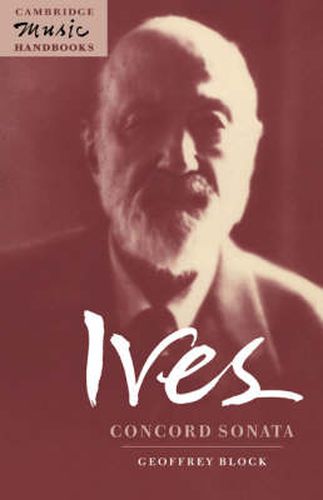Readings Newsletter
Become a Readings Member to make your shopping experience even easier.
Sign in or sign up for free!
You’re not far away from qualifying for FREE standard shipping within Australia
You’ve qualified for FREE standard shipping within Australia
The cart is loading…






Charles Ives’s massive Concord Sonata, his second sonata for piano, named after the town of Concord in Massachusetts, is central to his output and clearly reflects his aesthetic perspective. Geoffrey Block’s wide-ranging account of the work thus provides an ideal introduction to this fascinating composer. As well as a discussion of the Sonata’s reception history from 1920 to the present, and a chapter on its compositional genesis, this handbook includes a detailed narrative of the motivic content as well as a historical and analytical survey of the work’s borrowings, both certifiable and newly proposed. The programmatic element of the Sonata is explored in the context of Ives’s personal vision of four literary subjects associated with the town of Concord between 1840 and 1860: Emerson, Thoreau, Hawthorne, and the Alcotts.
$9.00 standard shipping within Australia
FREE standard shipping within Australia for orders over $100.00
Express & International shipping calculated at checkout
Stock availability can be subject to change without notice. We recommend calling the shop or contacting our online team to check availability of low stock items. Please see our Shopping Online page for more details.
Charles Ives’s massive Concord Sonata, his second sonata for piano, named after the town of Concord in Massachusetts, is central to his output and clearly reflects his aesthetic perspective. Geoffrey Block’s wide-ranging account of the work thus provides an ideal introduction to this fascinating composer. As well as a discussion of the Sonata’s reception history from 1920 to the present, and a chapter on its compositional genesis, this handbook includes a detailed narrative of the motivic content as well as a historical and analytical survey of the work’s borrowings, both certifiable and newly proposed. The programmatic element of the Sonata is explored in the context of Ives’s personal vision of four literary subjects associated with the town of Concord between 1840 and 1860: Emerson, Thoreau, Hawthorne, and the Alcotts.